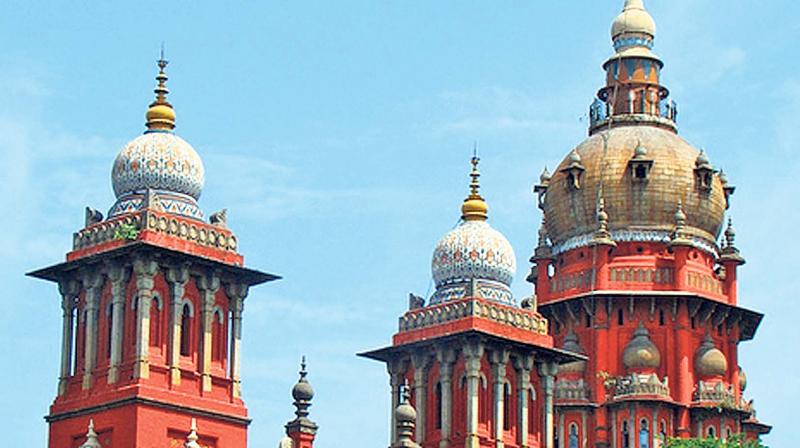Madras HC rejects plea to appoint full-time TN governor
Provision makes it clear that nothing in the Article shall prevent the appointment of the same person as Governor for two or more states.

Chennai: The Madras High Court has dismissed a petition seeking appointment of a full-time Governor for Tamil Nadu, holding that the Constitution provides for appointment of the same person as Governor of two states.
The first bench, comprising Chief Justice Indira Banerjee and Justice M Sundar, rejected the writ petition filed by journalist and social activist V Anbazhagan.
The petition sought a court direction to the President and the Union Home Ministry to appoint a full-time Governor for Tamil Nadu by implementing the recommendations of the Sarkaria Commission.
When the matter came up last week, the bench said, "Article 153 of the Constitution of India provides that there shall be a Governor for each state.
The provision makes it clear that nothing in that Article shall prevent the appointment of the same person as Governor for two or more states."
Noting that appointment of a Governor is in the realm of powers of the office of the President of India, the bench said, "In view of the proviso to Article 153 of the Constitution of India, the interference of the court is not warranted."
Earlier, the petitioner had submitted that Maharashtra Governor Ch Vidyasagar Rao has been holding additional charge of Tamil Nadu for the past seven months and hence there was no "effective administration of the executive".
He also pointed out that as per Article 154 of the Constitution, the executive power of the state shall be vested with the Governor and it shall be exercised by him either directly or through the officers subordinate to him in accordance with the Constitution.
Dismissing the petition, the bench further said, "In the writ petition or the documents appended thereto, there is not a whisper of how and in what manner the executive functions of the state of Tamil Nadu have been impaired by reason of appointment of CH Vidyasagar Rao, who is the Governor of the state of Maharashtra as well as the Governor of the state of Tamil Nadu.
"Our interference is therefore not warranted in view of the Constitutional Provision of Article 153 read with the proviso thereto," the bench said.

